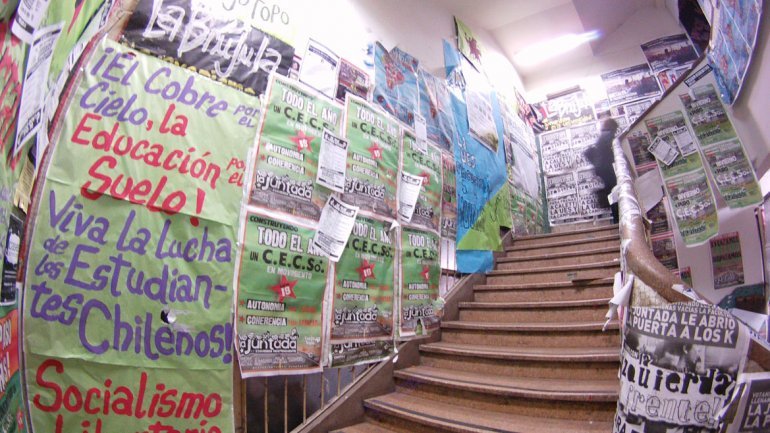Jen Katz ’19

In the weeks before I left for my semester in Buenos Aires this February, I had a thought that is common for students about to embark on their journeys abroad: what in the world was I thinking?
For me, this thought arose from all of the usual reasons why students are nervous to go abroad—leaving family and friends behind, adapting to a new culture and speaking a foreign language—but also because I was an English Major who had become less and less interested in my Spanish minor in the semester before leaving for Argentina. I would be taking the Institute for Study Abroad (IFSA) Butler’s concentration in literature while abroad, but I still felt that I was wasting an opportunity to go to London, Dublin, or some other center of great English literature.
Luckily for me, I could hardly have chosen a better Spanish-speaking city for a student of literature (even English literature). Cafés, streets, and plazas bearing the names of celebrated authors show the city’s pride in its distinguished literary patrimony. Buenos Aires was home to the great modernist and postmodernist authors Jorge Luis Borges and Julio Cortázar, who, among others, have left the city with a heritage of literature that is at the same time radically experimental and stunning in its beauty. Reading their short stories and novels is not only a glimpse into a literary tradition that is new to me but also an opportunity to learn more about the history of Buenos Aires through these narratives.
What has been even more interesting than Argentine literature to me, though, is studying North American literature alongside Argentines. I take most of my classes with other American students on my program but I take one class at the University of Buenos Aires (UBA) in which I am the only exchange student. This course, titled “North American Poetry: From the Margins to the Canon,” covers the work of American poets starting with Emerson and including Whitman, T. S. Eliot, the Beat poets, and Langston Hughes, focusing on how these poets have become incorporated into the literary canon.
 This topic is standard in the American literature curriculum, obviously, but is fascinating to examine in a room of people who are outsiders to the culture they are analyzing. I don’t think I will ever forget my professor writing out WASP on the board and explaining the acronym to the class: White Anglo-Saxon Protestant, or hearing explained the genre of Westerns, both concepts that are so second-nature to me as to require no explanation. I’d be lying if I said it wasn’t terrifying to speak in front of a class in which I am the only non-native speaker, but seeing the poems that we analyze through my classmates’ eyes and helping them to see through mine has been the most rewarding academic experience I’ve had so far while abroad.
This topic is standard in the American literature curriculum, obviously, but is fascinating to examine in a room of people who are outsiders to the culture they are analyzing. I don’t think I will ever forget my professor writing out WASP on the board and explaining the acronym to the class: White Anglo-Saxon Protestant, or hearing explained the genre of Westerns, both concepts that are so second-nature to me as to require no explanation. I’d be lying if I said it wasn’t terrifying to speak in front of a class in which I am the only non-native speaker, but seeing the poems that we analyze through my classmates’ eyes and helping them to see through mine has been the most rewarding academic experience I’ve had so far while abroad.
Just over two months into my stay in Buenos Aires, I think I can safely say that I wasn’t crazy to have come here. I’ve only just begun to get to know this city that is vibrant and full of creative energy, and every time I push myself to get to know it better I discover a strange and rewarding experience. Argentina is certainly off the beaten path for an English Major, but it is a path that I can recommend to those looking for a new or unusual experience.